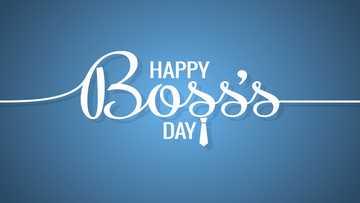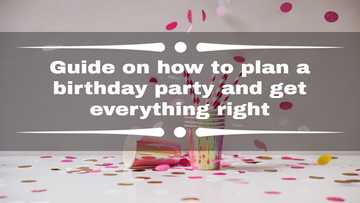How to start a book: A comprehensive guide for aspiring authors
Becoming an author is a journey filled with discovery and self-expression. However, the first step is often the most challenging: starting a book. The process requires creativity, dedication, perseverance, and mastery of your writing language. With the comprehensive guide below, your journey into learning how to start a book will be seamless.

Source: UGC
TABLE OF CONTENTS
Many aspiring authors need help with the first step when commencing a book. There are various approaches you could use to promise the reader a journey that is worth their time. With the correct method, you can quickly learn how to start a book and turn your ideas into a literary masterpiece.
How to start a book
Embarking on the journey of writing a book can seem overwhelming, particularly for those new to the craft. It demands dedication, a strong drive, and unwavering discipline. Even accomplished authors of bestsellers often find the initial step the most challenging. How do I begin a book? Check out the tips shared below:
How to start writing a book
After securing dedicated time and thoroughly contemplating your plot and characters, you're ready to begin writing. Adhering to these structured writing tips will guide you through crafting your book:
Designate a consistent writing enclosure
To write a book, you'll need a great space. A quiet place free of distractions would be best to get good writing done consistently. Whether it's a home office, couch, or coffee shop, your work environment should allow you to focus uninterrupted for hours at a time.
Sharpen in on your book concept
Ask yourself a few simple questions before writing. What is my novel about? Why is the narrative engaging? Why am I attracted to this idea? And who will want to read my story? If you're still exploring a book concept or stumbling with writer's block, try using script prompts to get started.
Summarise your narrative
To become a good writer, you must outline your story before you begin. The summary can be detailed chapter recaps. Summarising your narrative provides a visual map as a graphic sketch of your book's direction.
Always research

Source: UGC
Research is an essential tool for professional writers. You could read books or listen to podcasts that cover subjects similar to yours. If you're composing a non-fiction book, you'll likely want to spend time in libraries and archives. Research is also helpful for fiction work, as it can provide context for the period or character archetypes you're authoring about.
Write your draft
Writing your rough draft requires committing to consistent routines and productive writing habits. There are simple steps you can take to maximize your chance for success. Try setting daily word count targets to keep you on track. Schedule writing time and put it in your calendar.
You could also ask a friend or fellow writer to hold you accountable by sending them updates on how much you've written that day.
Revise and correct the first draft
Once you have your first draft, go back and revise it. Look for inconsistencies, plot holes, or areas needing more development. Every good book goes through many rounds of revisions. You can endure the editing process or ask a friend or professional editor to help. Either way, you need an honest, relentless eye on your writing to know what needs re-working.
Polish your draft
The second draft is your opportunity to apply your revisions and edits. It's also a chance to consider more significant, overarching questions. The second draft is also a chance to address more detailed questions. For example, does the book have a firm beginning? And does it have an impactful ending?
Publish your book
After completing your final draft, you can self-publish through digital platforms or pursue traditional publishing by submitting to a publisher, possibly with an agent's assistance.
How to start a book with the first sentence

Source: UGC
A good opening first sentence is a representation for readers of what to expect. Therefore, the first sentence should be intriguing, creative, and catchy. So, if you are wondering how to start a book's first sentence, here is a detailed step-by-step guide:
Introduce your narrative voice
Sometimes, the opening line introduces what the book will be like, how it will read, and how your narrator will address you. This technique is a great way to write your opening line because your reader has an immediate taste for the rest of the book and will make an affiliation right from the start.
Introduce the overall theme
If you are wondering how to start writing, introducing the overall theme first is an ideal way to begin a book. A well-crafted first sentence piques the reader's interest and curiosity, encouraging them to continue reading to discover more about the theme and how it unfolds throughout the book.
Start with something odd or curious
Start your sentence with something odd or curious to pique your readers' interest. This technique creates a sense of mystery, sets the tone, engages emotions, and encourages speculation.
Set the scene

Source: UGC
Write your opening line to immerse your reader from the beginning. They will be in your world and eager to learn more about what unfolds in the sentence's place and time.
Shock your readers
Shocking your readers can be a strategic choice to make your novel stand out and ensure that readers become hooked. Shock creates suspense, sets expectations and grabs attention.
Use humour
If you are wondering how to start a story, being funny at the beginning of your novel can have a delightful impact on the reader. It sets a positive mood for the rest of the book and connects with the reader.
How to start a book example
There are many ways you can start a book using various themes. Here are some notable examples according to Writer's Digest:
- The narrator says they will never love again.
- A man hangs several stories off a rooftop in the air.
- A woman wakes up in a ditch.
- Two people meet at a science fiction and fantasy convention.
- A child accepts a dare.
- Someone fishing alone sees something no one is likely to believe.
- The narrator reveals their greatest fear.
- The narrator says they are in love.
- The narrator reveals a long-hidden regret.
- An older woman finds a letter she'd forgotten she had.
- Two people searching for a geocache find something they never expected.
- A loud noise startles a person awake.
If you are a beginner, you may be wondering how to start a book. The guide above provides tips, tricks, and tools to lay the foundation for writing your novel, along with critical questions you must ask yourself before you start writing.

Source: Original
Yen.com.gh just released an informative step-by-step guide on how to make a circle skirt. This skill is beneficial and can lead to a unique wardrobe tailored to one's measurements and preferences.
Circle skirts have swiftly captured the hearts of today's generation thanks to their effortless charm and timeless appeal. But aside from buying one, do you know you can make your custom circle skirt with a detailed guide?
Source: YEN.com.gh







